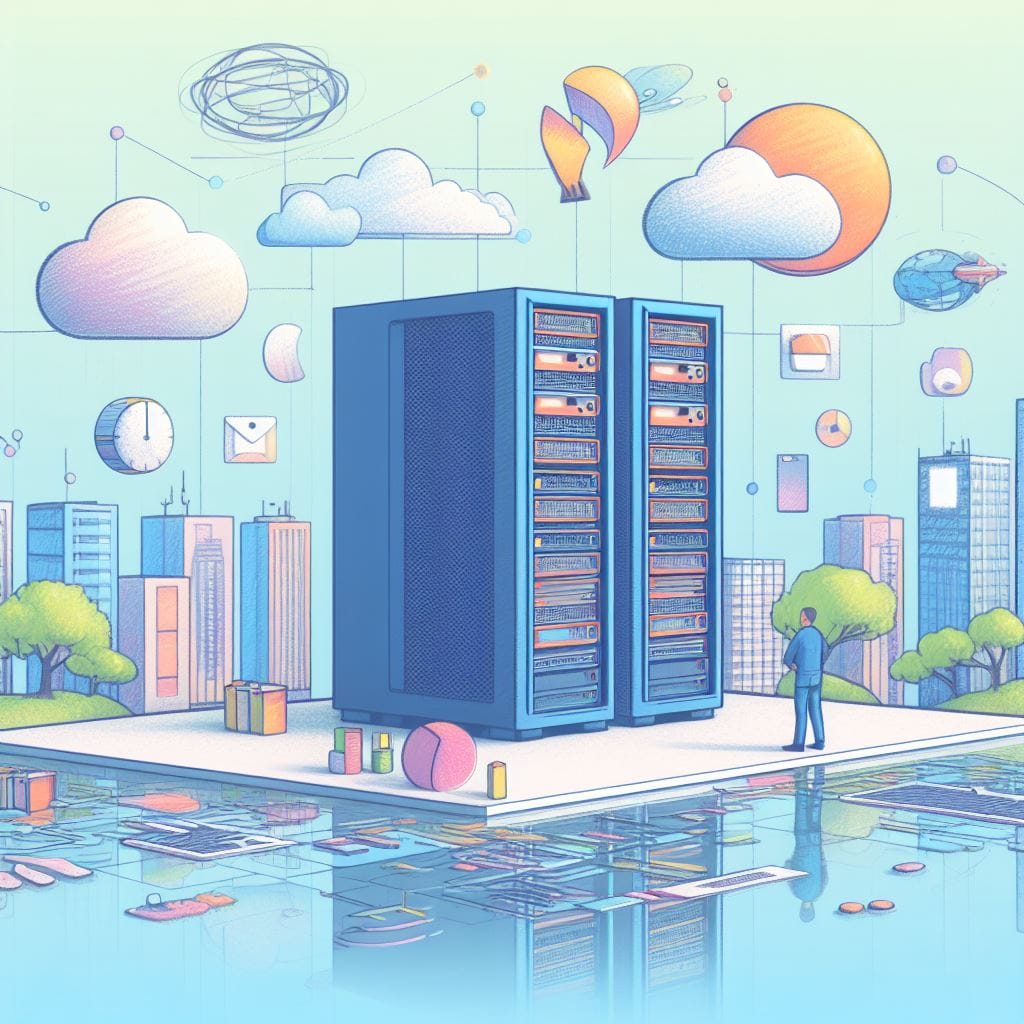A Comparison of Content Management Systems (CMS) for Enterprise-Level Websites on Hosting

Choosing the right Content Management System (CMS) for an enterprise-level website is a critical decision. It affects everything from site performance to scalability, security, and user-friendliness. Here's a comparison of some popular CMS options for enterprise-level websites:
- WordPress:
- Pros:
- Popularity: WordPress powers a significant portion of the internet, and it has a vast community of developers and users.
- Flexibility: It's highly customizable with a wide range of plugins and themes available.
- User-Friendly: The admin interface is intuitive and easy to use for non-technical users.
- Cons:
- Security: Since it's so popular, it can be a target for hackers. However, security can be significantly improved with proper measures.
- Scalability: While it's possible to scale WordPress, it may require more effort compared to some other CMS options.
- Pros:
- Drupal:
- Pros:
- Customization: Drupal is known for its robustness and ability to handle complex content structures and workflows.
- Security: Drupal is known for its strong security features and is often used for government and high-security websites.
- Cons:
- Learning Curve: It can be more complex for non-technical users to get started with Drupal compared to other CMS platforms.
- Community Size: While it has a dedicated community, it's smaller compared to WordPress.
- Pros:
- Joomla:
- Pros:
- Middle Ground: It offers a balance between WordPress's user-friendliness and Drupal's robustness.
- Extensions: There's a good range of extensions available for added functionality.
- Cons:
- Learning Curve: It may not be as intuitive for beginners as WordPress.
- Pros:
- Magento (for E-commerce):
- Pros:
- E-commerce Focus: Magento is built specifically for e-commerce and offers a wide range of features for online stores.
- Scalability: It's designed to handle large e-commerce operations.
- Cons:
- Complexity: Setting up and customizing Magento can be more complex compared to other CMS options.
- Pros:
- Sitecore:
- Pros:
- Enterprise-Grade Features: It's designed specifically for enterprise-level websites and offers powerful personalization, marketing automation, and analytics features.
- Scalability: It's built to handle large and complex websites with ease.
- Cons:
- Cost: Sitecore is known for being expensive, which may not be suitable for smaller enterprises.
- Pros:
- Adobe Experience Manager (AEM):
- Pros:
- Integration with Adobe Suite: It seamlessly integrates with other Adobe products, which can be beneficial for businesses heavily invested in Adobe's ecosystem.
- Scalability: AEM is designed to scale for enterprise-level needs.
- Cons:
- Cost and Complexity: Like Sitecore, AEM can be expensive and may require a higher level of technical expertise to set up and manage.
- Pros:
- Contentful:
- Pros:
- Headless CMS: Contentful is a headless CMS, which provides flexibility for developers to build custom front-ends.
- Content Modeling: It's known for its robust content modeling capabilities.
- Cons:
- Limited Built-in Features: It may require more development effort compared to traditional CMS platforms.
- Pros:
Ultimately, the best CMS for an enterprise-level website will depend on specific requirements, budget, technical expertise, and scalability needs. It's recommended to evaluate each option thoroughly, potentially through a proof of concept or trial period, to determine which one aligns best with your organization's goals and resources. Additionally, consulting with web development professionals or agencies with experience in enterprise-level projects can provide valuable insights.



